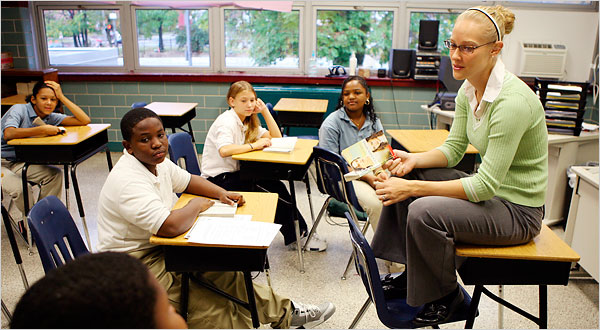California charter schools draw bipartisan support, but fail to live up to the hype

Amazingly, three of California’s major gubernatorial candidates agree on one thing – we need more charter schools.
Steve Poizner, who co-founded the California Charter Schools Association in 2003, wants to create local charter school districts.
Meg Whitman campaigns on a promise to lift the cap on the number of licensed charter schools permitted. Finally, recently announced candidate, Attorney General Jerry Brown, when serving as Mayor Brown, helped establish the Oakland Military Institute, a college prep military-style program that claims to place twice as many students in higher learning programs than nearby public schools.
California was the second state to pass a charter school law in 1992. Currently, nearly every state permits charter schools to co-exist with public schools. Conservatives like charter schools because they are founded on a model of accountability, tend to be exempt from collective bargaining laws, represent a model of privatizing a traditional government function, and offer competition and choice to the public system.
Liberals like charter schools because they frequently offer specialized programming directed towards targeted populations and often allow for more direct community participation. For example, higher rates of Black and Latino students attend charter schools than their local public schools.
Given the political weight the gubernatorial candidates have thrown behind the charter schools, that public perception is favorable and that they seem to please the left and right, it would seem a safe and reasonable alternative policy to traditional public education.
However, the charter school experiment has, according to many, been somewhat of a failure. Education historian Diane Ravitch, who was appointed by both Presidents Clinton and George H.W. Bush to serve in the Department of Education, and currently a research professor at NYU, penned a stinging critique of the charter school system.
Originally a staunch supporter of the system, she now argues that the model of competition and accountability works no better, and in some cases much worse, than the typical public school system. Conservatives might be disappointed to learn that federally administered tests demonstrate that between 2003 and 2009 charter schools have never outperformed public schools.
Liberals will be shocked to learn that Black and Latino students in charter schools do not out perform their public school counterparts. This is surprising, she continues, because of the seeming advantages given charter schools. Ultimately, she concludes that schools perform better, and students learn more, when the focus is on collaboration, not competition and financially driven incentives.
Ms. Ravitch’s prediction has come true for one charter school many thought was “too big to fail.” Last month, California placed the Stanford New School, a K-12 program created and supervised by Stanford University’s School of Education, on a list of consistently underachieving charter schools. On April 14, the school’s board voted not to renew the school’s contract.
The school failed despite being founded by Obama advisor Linda Darling, and a board packed with Stanford administrators and Silicon Valley heavy hitters. While this is one of the most high-profile charter school failures in recent history, in terms of financial consequences, it is dwarfed by the spectacular failure of what was formerly California’s largest charter school operator, the multi-million dollar California Charter Academy. The Academy collapsed mid-school year in 2004, leaving students without educational programming, and some administrators facing indictment.
Advocates argue that charter school students perform somewhat better than public school students and offer competition and choice. Detractors argue that with only about 3% of the American students enrolled in charter schools, the focus should be on improving the public school system, not on propping up a popular, but ill-conceived model.
Moreover, there have been multiple failures of high-profile, well-funded, and well-intended charter schools. With passionate advocates on both sides of the issue, and the Obama administration’s embrace of the charter school model in its “Race to the Top” program, expect this issue to heat up on both the national stage and in the California governor’s race.




